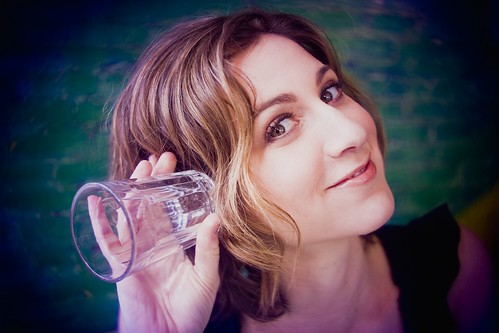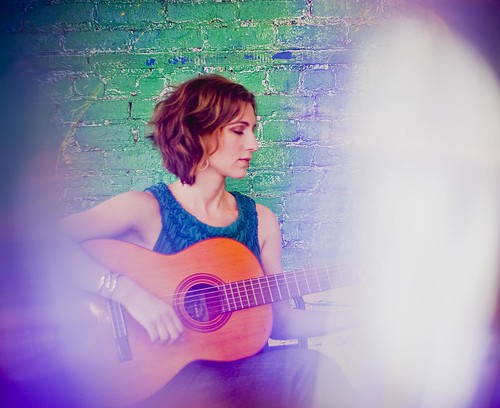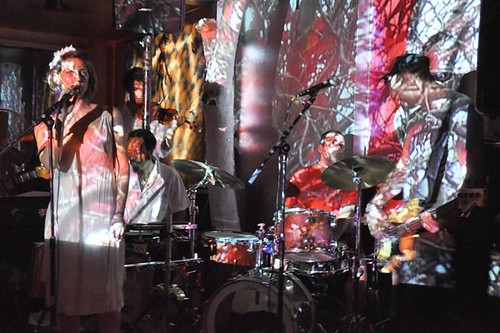Interview: Eleanor Dubinsky
Eleanor how would you describe yourself in three adjectives?
Curious, self-expressive, driven
What is your connection to France?
I was introduced to the French language, and to the idea of France, when I was in elementary school. We had a French teacher who was very kind and taught me how to pronounce the French ‘u’ correctly at a young age. I was already studying classical cello by ear, so my musical training (and natural ability for languages) helped me speak French with an accurate accent. This first success sparked my imagination – I could pretend to be a French girl if I learned to speak well enough! So I learned, and I played.
Additionally, as a teenager I made several visits alone to France, staying with family friends and then with a host family with a girl my age, so I got to experience the country and culture from an insider’s perspective. French, more than France, became a way for me to experience the world outside of where I came from and to have a lot of independence.
Since my teenage years, I have expanded my relationship to France to include teaching French in France to a group of American students; participating for several years in an international music and dance collective in Paris called Emma Jupe; and now, as two members of my band are from Paris, I speak French nearly every day with them and also other French friends in New York.
What are your interests outside of writing and singing music?
Oh so many! I love languages – love hearing, speaking and being around languages I can learn. I speak French, Spanish and English daily and can converse in Portuguese and Italian. I learned Czech living in Prague, and Japanese is in the mix too because I studied cello with a Japanese teacher from the age of five and heard it constantly for many years.
I am also a modern dancer, and continue to take classes and go salsa dancing for fun. I make video art and show it at a gallery in St. Louis, Missouri called the Bruno David Gallery.
I studied philosophy of education, primarily focusing of the role of the arts in affecting social change, and I love to teach and to work with children, and to facilitate workshops in which children and adults can express themselves through the arts.
I also love to swim in fresh water ponds, to appreciate nature, meditate, get enough sleep, write, read and relax.
How did you get started making music?
I started studying Suzuki cello at the age of three. My mom says she put me in music classes because my music teacher in a children’s playgroup told her I was gifted.
How do you describe your music?
My music is soulful, sincere and heartfelt, with a rhythmic pulse that makes you tap your toes or dance to the beat. I sing in English, French and Spanish and my sound is a cross-pollination of Latin, African, American folk and European traditions. My lyrics come from moments of insight and from my efforts to elucidate for myself what is going on in a particular situation or relationship. I am going to record a new record this fall, which will have more of a ‘feel good’ vibe to it as a departure from some of the more introspective mellow songs on my first album Touch the Sky.
You sing in English, French and Spanish. What are the benefits of being able to sing in three languages? Do the different languages (and their cultures) better evoke a certain mood to you?
Yes, they do. I find I can express more aspects of my personality through singing in multiple languages. French makes me feel romantic and poetic, English is connected to my past and to my family, and Spanish is about passion, love, justice and heartbreak. These are big generalizations of course.
Another big benefit of singing in multiple languages is that I feel more closely connected to, and attract, a multi-national audience. When I play a concert and French or Spanish-speaking members of the audience hear me sing, I can feel the channels open up between us and the connection growing stronger. Singing in Spanish in New York City is particularly important to me because so many of the employees in the food service and entertainment industries are Spanish-speaking immigrants and I want my concerts to be inclusive of everyone who is listening.
What is the highlight of your music career so far?
My band. The big highlight for me is watching us shift and grow over time while remaining creative, collaborative and respectful. We are five people total: Vita Tanga (guitar), Ben Zwerin (electric bass), Scott Morehouse (drums), Bashiri Johnson (percussion) and myself (vocals, cello, guitar, hand percussion). I have been working with Vita and Ben (both French) a bit longer than the rest. The five of us form a constellation of diverse personalities that miraculously compliment each other and I am continuously grateful because I feel like each person sincerely wants to make the music the best it can be, with no ego. We get better and better, and each person pulls his or her own weight. I’m going into the studio on October 1, to record with everyone for the first time and I can’t wait to hear what happens. I also love the engineer I work with, Roman Klun. I’ve got a great team.
What else inspires you?
Listening and people who listen, taking risks, public intellectuals who examine new ideas, reinvention, sunsets, sunrises, running water, virtuosity, organization, discipline, endurance, a sense of wonder.
And what about your favorites:
Who is your favorite French singer, musician, songwriter or composer?
Serge Gainsbourg
What is your favorite French song and why?
I don’t really have one. I love African music and there are some terrific francophone musicians from around the world who I follow, including Richard Bona, Oumou Sangare and Baaba Maal. There is a band called La Tordue that I like that existed in Paris from 1989 – 2003 that represents a French internationalism. I think it’s important to ask the question: What is French music? Like what’s American music? There is all sorts of music coming out of France now by musicians with diverse backgrounds.
Which is your favorite French city?
I love the beach towns all along the coast and the villages in Provence.
What is your favorite French food?
Wine. Cheese. Time*.
Do you have a favorite bar, bistro or restaurant in Paris?
No – any recommendations are welcome.
—-
*In New York, I feel like we rarely take the time to just celebrate and enjoy life, so I love that people do that in France – they kind of eat it up.
Eleanor, thank you for taking the time to speak with us at www.MaVieFrancaise.org. We really enjoyed meeting you and getting to know more about you and your music.
If you would like to find out more about Eleanor, you can visit her Facebook or follow her on Twitter. You can also sample Eleanor’s music on her website, purchase it on iTunes or check out this video of an acoustic performance of her song Jeu de Deux (which is in French and English).
Image credits:Images of Eleanor Dubinsky by Todd Chalfant.
Images of Eleanor Dubinsky and band by Yne Leal.










Eleanor, What a lovely interview – very inspiring. Thank you for taking the time to speak with us.
Judy
PS: we are always looking for inspiring people to interview, so if you have any suggestions we’d love to hear from you. Interviews in French or English or both!
Et plus on descend dans le Sud de la France, plus les gens prennent le temps.
Mais ces sont les italiens qui ont inventé le “farniente”. 😉